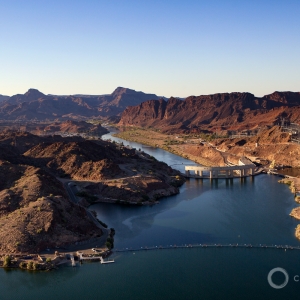Federal Water Tap, July 11: Rio Grande Water Dispute Moves Closer to Resolution
The Rundown
- Rio Grande states say they have the outlines of a legal settlement over use of the basin’s water.
- USGS researchers calculate the age of groundwater across the U.S.
- Federal energy regulators propose that electric transmission providers report on their actions to assess climate-related risks.
And lastly, Utah moves forward with a federal study of water supply and demand in the Great Salt Lake basin.
“We must take swift action to combat and reverse the damage that severe drought is causing all across our state.” — Sen. Jacky Rosen (D-NV) in a press release. Rosen and other western Democrats co-sponsored legislation to authorize an additional $500 million for large-scale water recycling projects.
By the Numbers
38 Percent: Share of groundwater in 21 major U.S. aquifers that is less than 70 years old. That figure is from a U.S. Geological Survey assessment of groundwater age. Younger groundwater is more vulnerable to contamination from farm runoff and other surface pollution. Older groundwater, on the other hand, is less easily replenished and susceptible to unsustainable “mining.” Some 28 percent of the groundwater in these aquifers is older than 11,800 years.
In context: Atomic Crumbs Guide First Global Assessment of Groundwater Age
News Briefs
Rio Grande Lawsuit
The three states in the Rio Grande basin say they have agreed “in principle” to settle an interstate lawsuit over use of the river’s water, according to a document filed with the U.S. Supreme Court.
Even with the basic outlines of an agreement, the states say there is still significant work to do: drafting the document, plus legislative and regulatory steps.
Colorado is the headwaters state in the basin, but the dispute is based on Texas’s claim that New Mexico is violating the Rio Grande Compact by allowing too much groundwater extraction in its portion of the basin, thus depriving Texas of its allotted water.
The parties will reconvene for a status update on July 26. A court hearing originally scheduled for October 3 has been postponed, pending progress on the settlement agreement.
Studies and Reports
Non-Native Fish in the Colorado River
It’s one more bad outcome from a depleting river.
Federal biologists found smallmouth bass below Glen Canyon Dam, the Associated Press reports. The non-native bass prey on endangered and threatened local species like the humpback chub.
Electric Transmission Climate Risk Assessment
Federal energy regulators at FERC are proposing that electric transmission providers file a one-time report detailing their process for evaluating climate-related risks.
The move comes a year after a severe winter storm in Texas and the Deep South resulted in power cuts for millions of households and businesses.
On the Radar
Michigan Dam Failures Webinar
On July 19, FEMA will host a webinar to review a new report on the cause of the dam disasters in Michigan two years ago.
In May 2020, following a period of heavy rain, the Edenville and Sanford dams failed.
In context: Country’s Aging Dams, a ‘Sitting Duck,’ Facing a Barrage of Hazards
Great Salt Lake Study
The Bureau of Reclamation accepted a letter of interest from the Utah Division of Water Resources for a comprehensive assessment of water supply and demand in the Great Salt Lake basin.
Candice Hasenyager, the division director, said the full proposal is due in August and she hopes the award will be made a month or two later.
Reclamation’s basin study program has funded more than two dozen such studies.
Federal Water Tap is a weekly digest spotting trends in U.S. government water policy. To get more water news, follow Circle of Blue on Twitter and sign up for our newsletter.
Brett writes about agriculture, energy, infrastructure, and the politics and economics of water in the United States. He also writes the Federal Water Tap, Circle of Blue’s weekly digest of U.S. government water news. He is the winner of two Society of Environmental Journalists reporting awards, one of the top honors in American environmental journalism: first place for explanatory reporting for a series on septic system pollution in the United States(2016) and third place for beat reporting in a small market (2014). He received the Sierra Club’s Distinguished Service Award in 2018. Brett lives in Seattle, where he hikes the mountains and bakes pies. Contact Brett Walton







Leave a Reply
Want to join the discussion?Feel free to contribute!